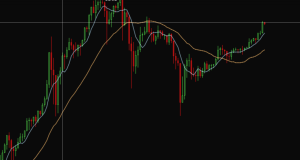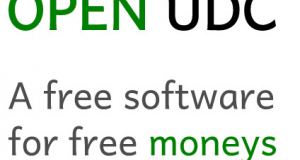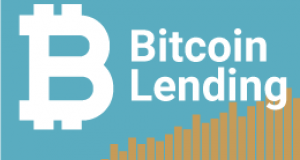
Volatility, fluctuations in value. Many people are not trying Bitcoins for these reasons. For others its a way to make money. Speculation is a big reason for the fluctuation in the dollar value of Bitcoin. But there are some smart people who came up with a way to use speculation to create stability.
Altcoins and P2P exchanges
It's probably good to mention here that there are many more cryptocurrencies beside Bitcoin. One of these so-called altcoins is the Protoshare (PTS), started by Invictus Innovation. Invictus want to do more than just currencies, but also for example set up an encrypted, secure messaging system. Another idea is to set up a decentralized exchange through free software and decentralized agents, to decrease the dependency on one or more specific exchanges such as Bitstamp and MtGox - and consequently also decrease the possibility for governments (e.g. China comes to mind) and banks to thwart the exchange of cryptocurrencies.
One of the most important ideas flowing from the P2P exchange is to create Bitcoin-like currencies that are pegged to the US dollar (BitUSD), the Euro (BitEUR) or any kind of value, it can also work for an ounce of gold or the value of a Google share.
How does this work?
The idea behind it is that anyone who owns Protoshares can lend BitUSD to someone, where the collateral for the BitUSD is 200% of the dollar value in PTS. Suppose 1 PTS is worth 20 USD, you can then lend 10 BitUSD as the owner of 1 PTS. The moment PTS drops to 15 USD you will have to increase your collateral to 1,33 PTS. If PTS drops down to 10 USD and you have not increased your collateral your PTS will be sold and the BitUSD will be redeemed with actual dollars. So the speculator would loose their money through a margin call. In the opposite case, if e.g. 1 PTS is worth 40 USD the speculator can take out half a PTS, which would be speculation profit.
So the creation of BitUSD will allow speculators to make money while at the same time making sure that there is a much more stable, less volatile cryptocurrency, that can be sent anywhere in the world in a very short time. Also, it's interesting to compare to banks, which are usually working with collateral of much less than 100%, they merely create money these days and the entire system would collapse if even 5% of people would claim the money in their accounts in cash.
MasterCoin
MasterCoin (MSC) has some properties similar to PTS, such as a P2P exchange and a way to peg to real world values, but its blockchain is piggy back riding the Bitcoin blockchain. This has the advantage of security, since a potential attacker would need to gain a lot of computing power to create fake transactions.
Apart from the above there's also Ripple, which I've already looked into back in 2007, but which has radically changed in the meanwhile. The software is or was not free and open and the majority of the Ripple coins (RPX) are in control of one entity. So it lacks the decentralization that has attracted so many people to Bitcoin. But I must confess I need to learn more about Ripple. The same goes for Nxt, another promising next-generation coin. And then there's probably another dozen or so altcoins going to pop up in 2014 with similar properties. But personally I think either PTS or MSC is going to be the first big cryptocurrency 2.0, because of decentralization and stability. Good times.
More than two years later it seems that stability is not there yet (see e.g. what happened with TheDAO). Meanwhile I've started a business around international payments and with that we're still far from using a blockchain for transactions.






